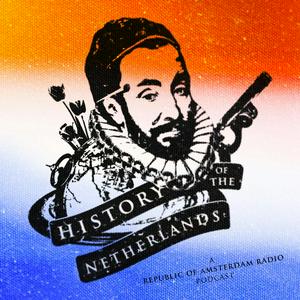52 - Draining the Swamp Part 2: Too Drained, Too Furious
Between the years 1000 and 1500 CE the soggy, sphagnum filled bog lands of the western Low Countries were terraformed to support human habitation and, as such, the seeds of future prosperity and hardships were simultaneously, albeit unknowingly, sown. Draining the swamp meant that land was created for agriculture, farming and settlement. This land was crisscrossed by waterways over which products both domestic and foreign could be moved on boats from the sea to the rivers and vice versa. Draining the swamp also meant that those lands sank, due to oxygen seeping into the pierced mass of moss and rotting the previously petrified peat within. People had to invent things like pumping mills to move water out of the swamp and stave off that waterlogged sinking feeling they had been experiencing. By the start of the 16th century, towns in the Low Countries had become important hubs of commercial shipping, with boats sailing from Northern Germany and beyond to the Baltic Sea, preferring to use the relatively calm and peaceful waters “inside the dunes” of Holland to reach markets in Flanders, as opposed to risking the open waters of the North Sea. Although water management required cooperation between the peoples of different towns, all of this economic activity also naturally created competition and rivalry between these towns, particularly in Holland, as they literally fought over their rights to do things like dig new canals, build new locks and charge tolls. It’s Draining the Swamp Part II: Too Drained, Too Furious.
With thanks to Fredrik, Kelly Magee, Laura Isräels, Kevin Bertram and Lars for their Patreon support.
SHOW NOTES: https://www.republicofamsterdamradio.com/episodes/historyofthenetherlands/episode-52-draining-the-swamp-part-2-too-drained-too-furious
PATREON: https://www.patreon.com/historyofthenetherlands
TWITTER: https://www.twitter.com/historyofNL
Learn more about your ad choices. Visit podcastchoices.com/adchoices


